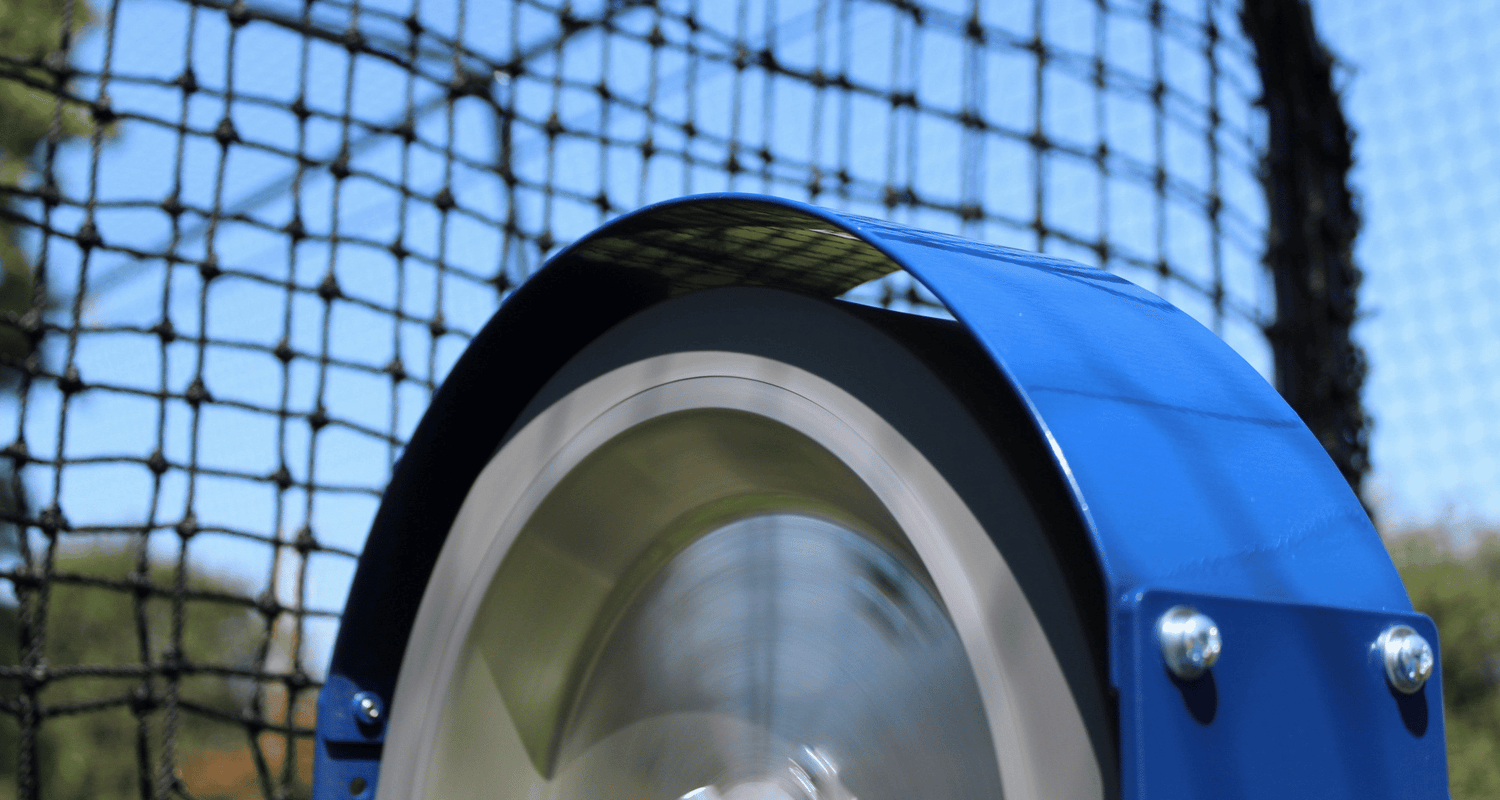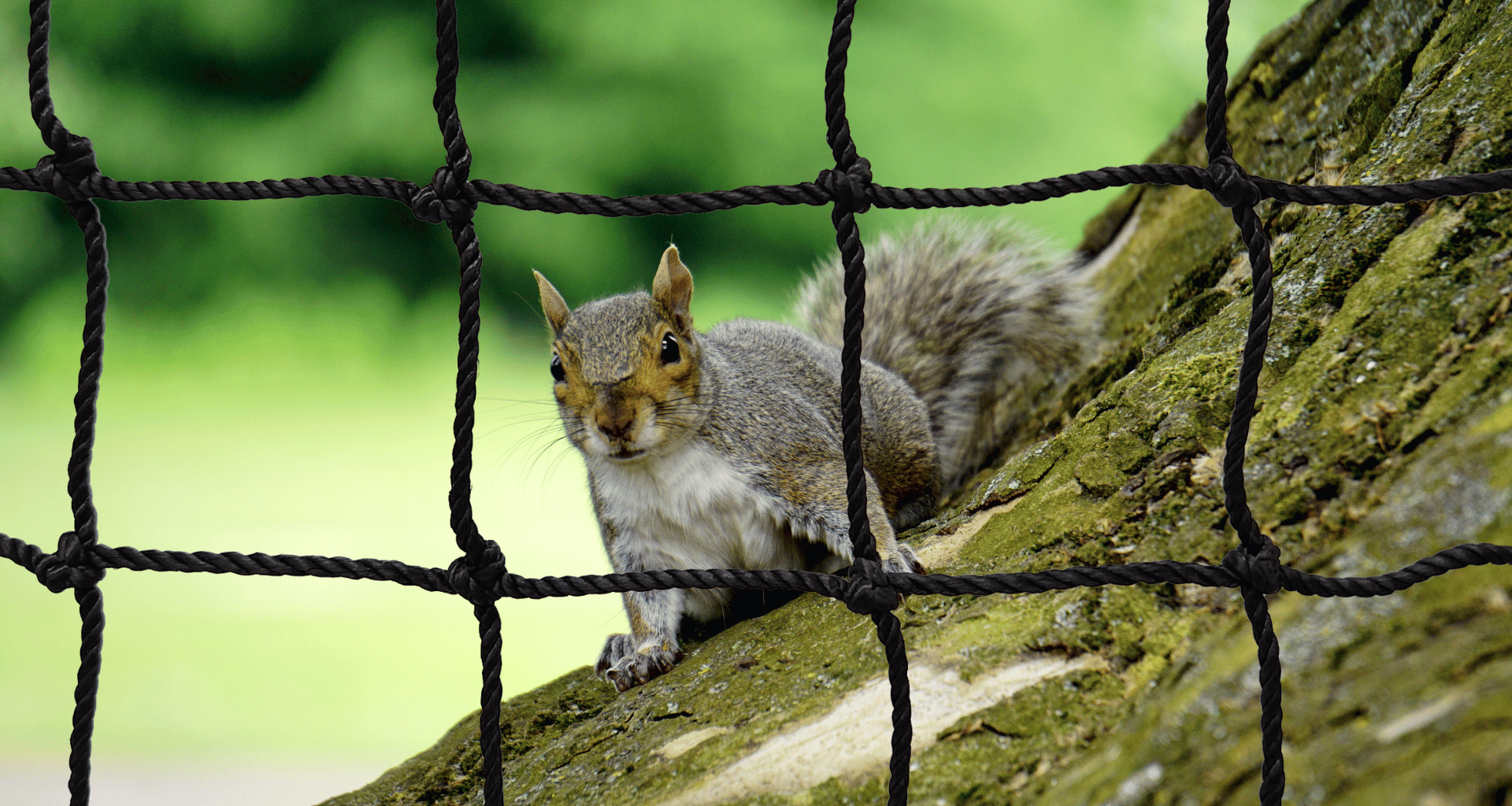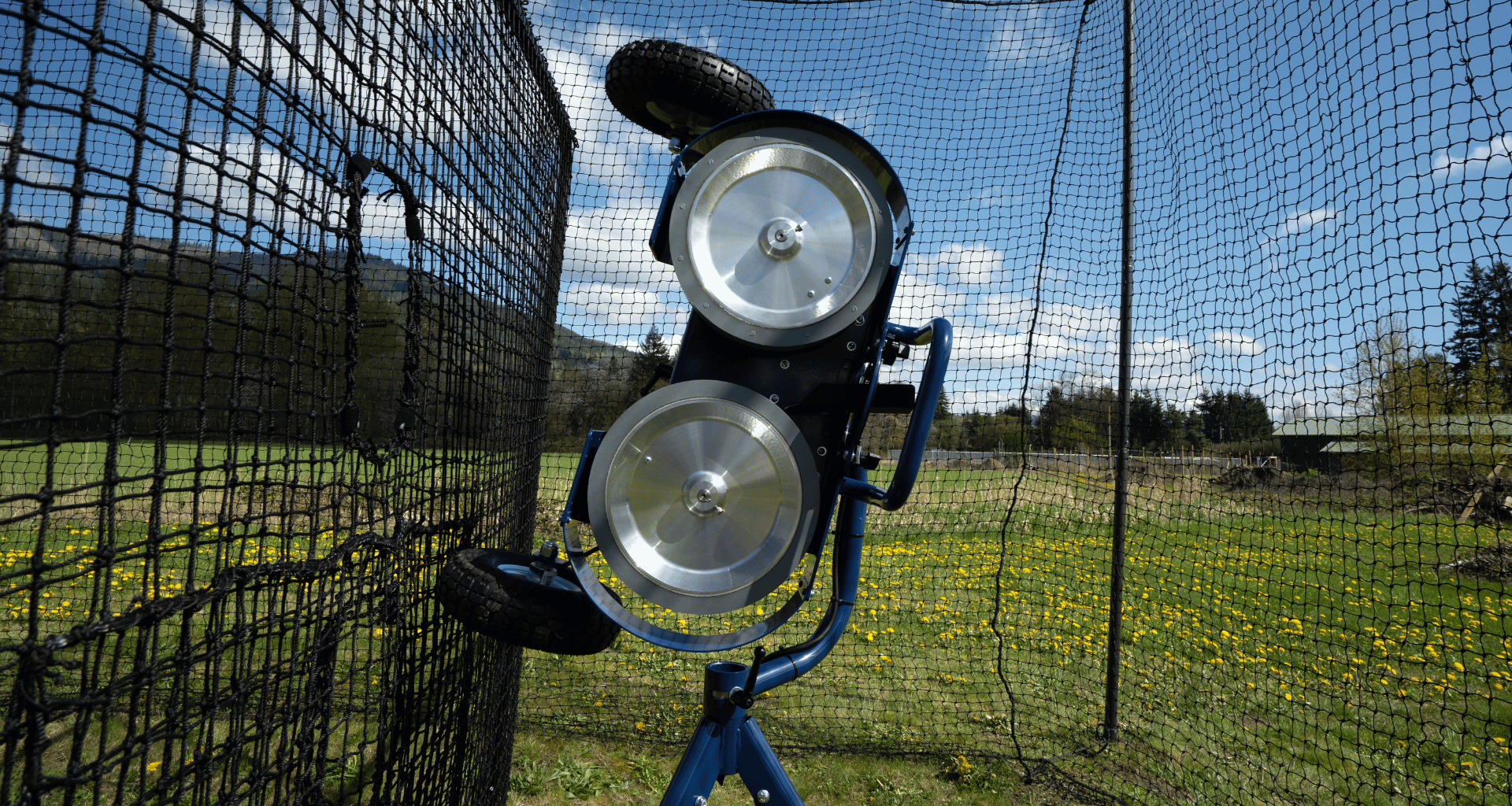When it comes to pitching machines, the choice of tires depends on the specific needs and preferences of the user. There are generally three types of pitching machine tires: air-filled (pneumatic) tires, polyethylene tires, and solid rubber tires. Each type has its own advantages and disadvantages. Here is a brief summary:
Air-filled (pneumatic) tires
These tires are similar to the ones you find on bicycles or cars, filled with air to provide cushioning and shock absorption.
Pros:
- Improved accuracy: The cushioning effect of air-filled tires can provide a more accurate and consistent pitch delivery by reducing inconsistencies caused by vibration or uneven surfaces.
- Adjustable pitch speed: By varying the air pressure in the tires, you can adjust the pitch speed to suit different skill levels and training requirements.
Cons:
- Maintenance: Pneumatic tires require periodic maintenance to ensure they maintain the proper air pressure and remain in good condition.
- Weather-dependent: Extreme weather conditions, particularly cold temperatures, can affect the performance of air-filled tires.

Solid polyurethane tires
These wheels are made from solid materials such as polyurethane, providing a durable and reliable pitching experience. Here are some pros and cons:
Pros:
- Low maintenance: Solid polyethene tires do not require regular maintenance like pneumatic wheels since they are not affected by air pressure.
- Long-lasting: Solid polyethene wheels tend to be more durable and resistant to wear and tear compared to air-filled tires.
- Weather-resistant: Solid wheels are not affected by weather conditions, making them suitable for outdoor use in various climates.
Cons:
- Reduced vibration absorption: Solid polyethene tires do not provide the same level of cushioning as pneumatic tires, which may result in slightly more vibration during the pitch delivery.
- Are harder surfaced and don't grab the ball as well: This can affect the accuracy of pitches. Wheels can become harder over time.

Solid Rubber Wheels-BATA Pitching Machines
These solid tires are made by Good Year.
Pros:
- These rubber tires are made of a special grade of softer and stickier rubber. This provides superior grip providing higher spin rates.
- Less vibration of solid tires due to aircraft aluminum wheels manufactured by Edelbrock and precision balanced in our BATA facility.
- Lower Maintenance than pneumatic tires.
Cons:
- Since the tires are softer and stickier, they do wear a bit quicker than polyethene wheels.

Considering all the options, BATA chose to have special tires and wheels built to add additional quality and accuracy to our line of pitching machines. Listen to what our customers say about the BATA machines with the only 10 Year Warranty for pitching machines on the market today.





Leave a comment
All comments are moderated before being published.
This site is protected by hCaptcha and the hCaptcha Privacy Policy and Terms of Service apply.